POWGEN project brings together initiatives from Italy, Germany, Portugal, Catalonia and Europe to share good practices and promote a more sustainable and diverse future of work
Barcelona hosted on the 22nd and 23 of May the European Networking event for a more sustainable and diverse future, within the framework of the POWGEN project. A networking and exchange space to share challenges and opportunities in the socio-labour inclusion of migrants in key sectors for the ecological transition, such as renewable energies and energy rehabilitation of buildings.
Good practices
The first part of the meeting served to share good practices such as those of the Idària Cooperativa, the Next Diversitat i Empresa project of ECAS (Entitats Catalanes d’Acció Social) and PIMEC, the Iria and Dona’t Impuls projects from Grameimpuls, or the Crea Feina Inclusiu program of Barcelona Activa. The POWGEN good practices report was also been presented, which includes European experiences with a vocation for replicability. In addition, two projects that work for the inclusion of diverse people in Barcelona and that develop community initiatives and in sustainability were visited: IMPULSEM and Migrastudium.
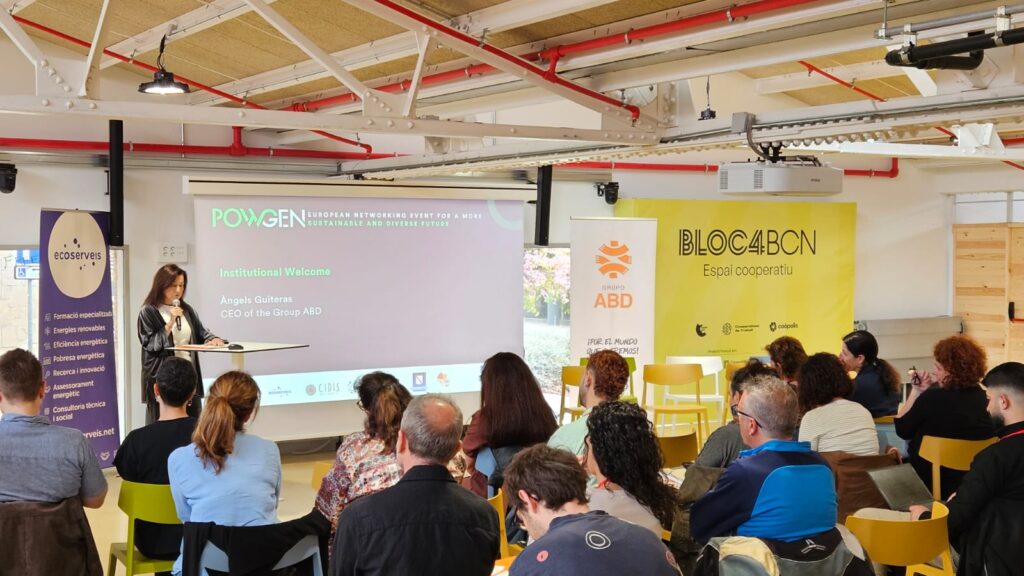
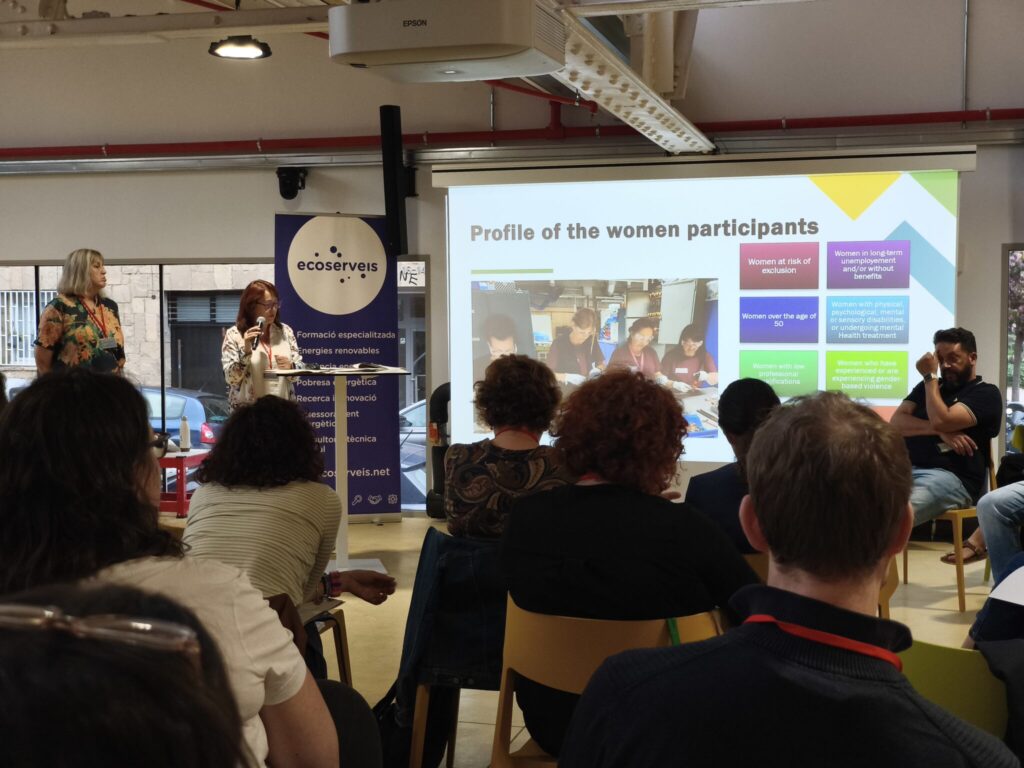
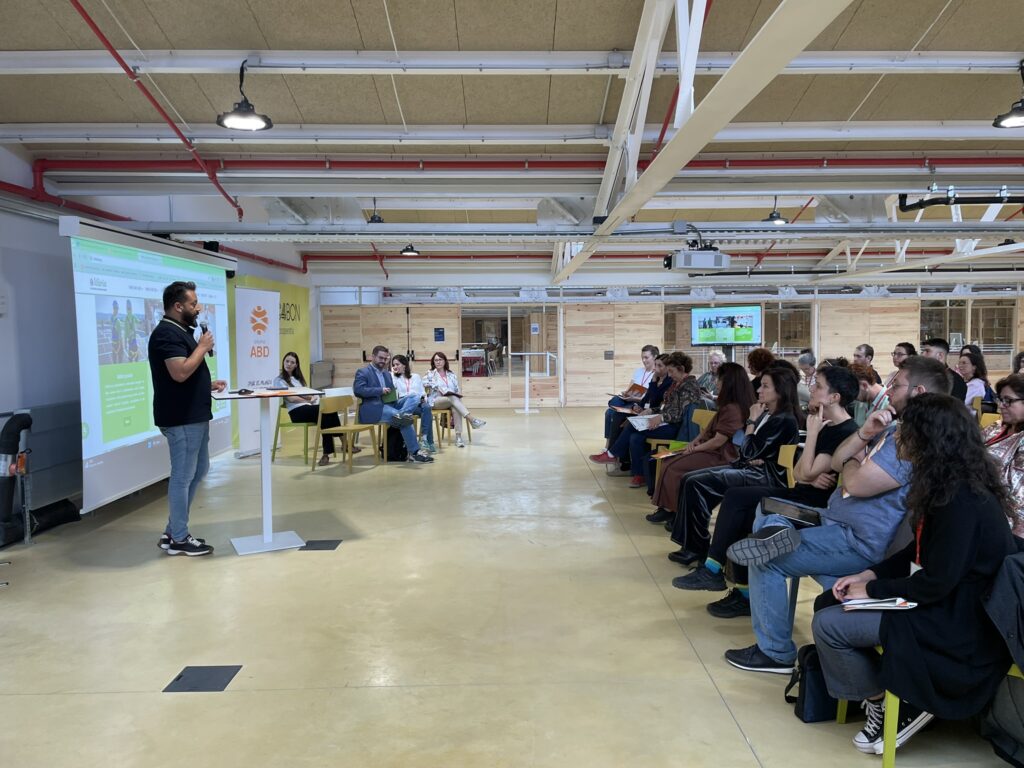
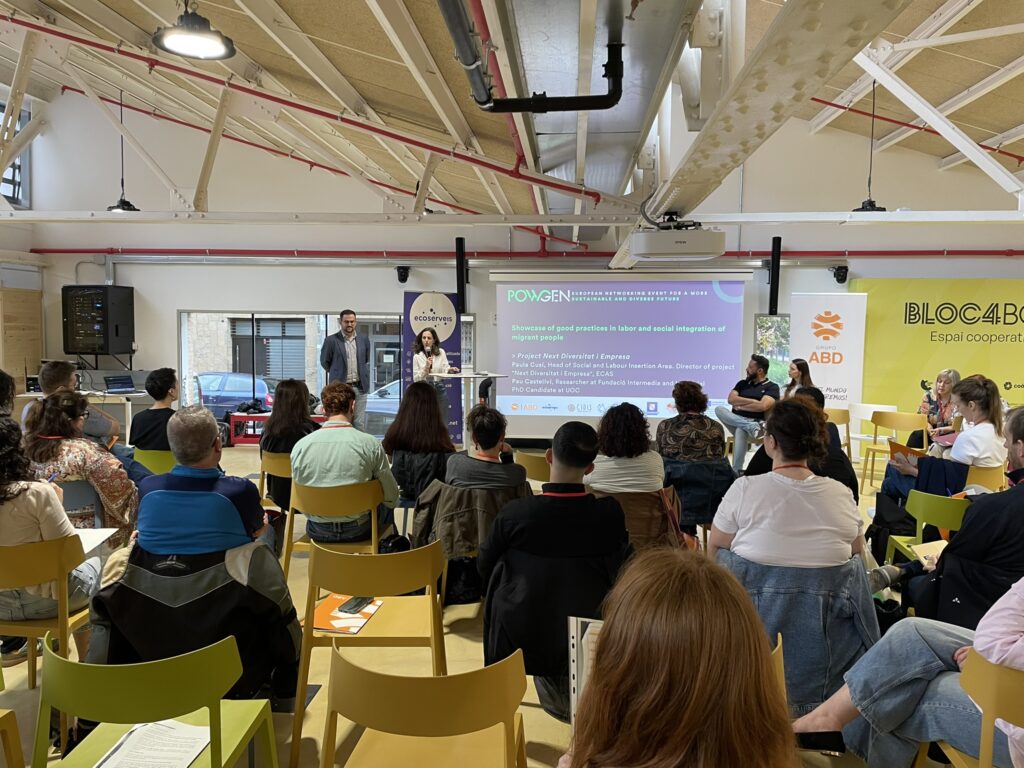
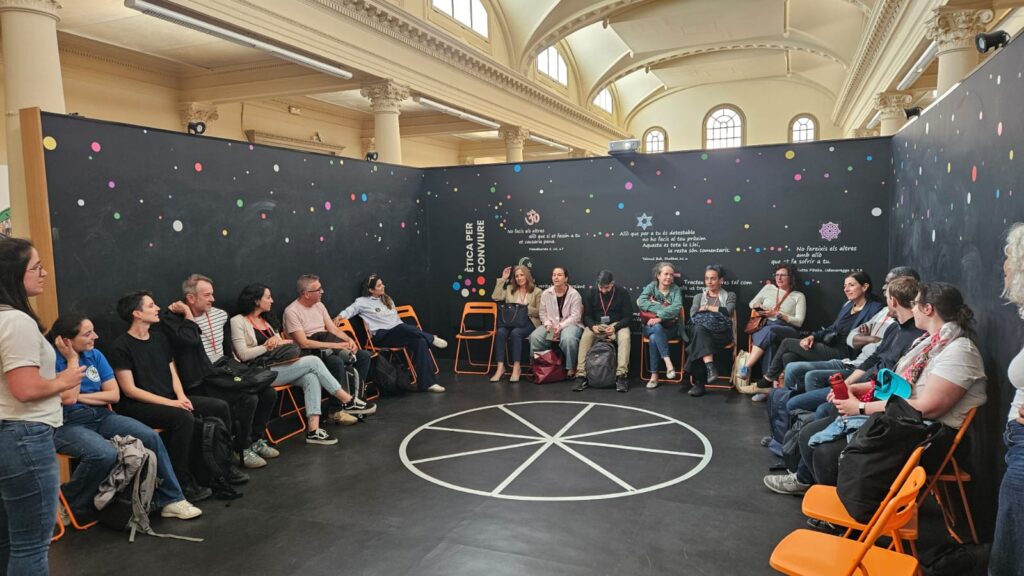
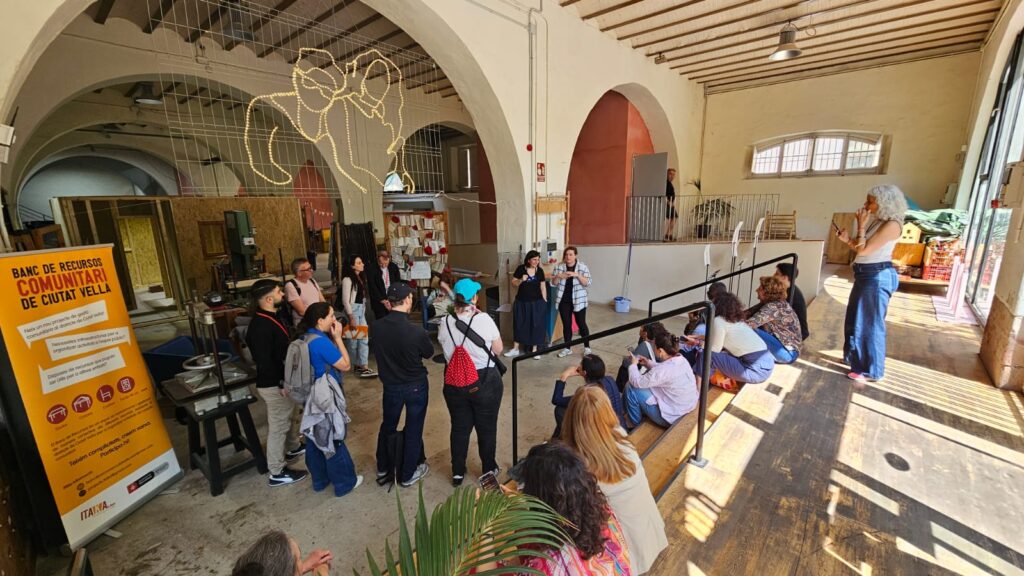
Challenges and solutions
The second part of the meeting focused on the exchange of challenges and opportunities between representatives of the Local Clusters from Catalonia, Italy, Germany, Portugal and Europe to build a more diverse and sustainable labour market.
Representatives of public administrations, companies and organizations of migrant people put forward several proposals: Greater training and support for companies to generate inclusive, open and safe workspaces for employees and to deal with the bureaucracy involved in hiring people in irregular administrative situations. Also calls on public administrations to facilitate and reduce bureaucracy in these processes; recognize the training, knowledge and experiences of migrant people obtained in their countries of origin or in transit and strengthen self-organized migrant organizations. In relation to migrant people and people in vulnerable situations, the reflections aimed to take into account their need for access to the labour market but also their personal circumstances (housing, family, language, age, culture…).
All the agents positively valued the collaboration and coordination between public administrations, companies and organizations of migrants to give comprehensive answers adapted to reality.
The meeting served to share shared challenges at the local and transnational level and to identify and build “joint responses”, summarized the project coordinator from ABD, Lara Rot. “When employers collaborate with social entities, better results are obtained”, reinforced the Intermediate Foundation researcher, Pau Castellví. With POWGEN, “we want to invite companies to take another step and take the opportunity to incorporate trained and motivated people,” concluded Rot.
And, as the director of Idària, Karim Sabni, concluded, “hiring people in irregular administrative situation is viable and productive for companies and generates social impact”.
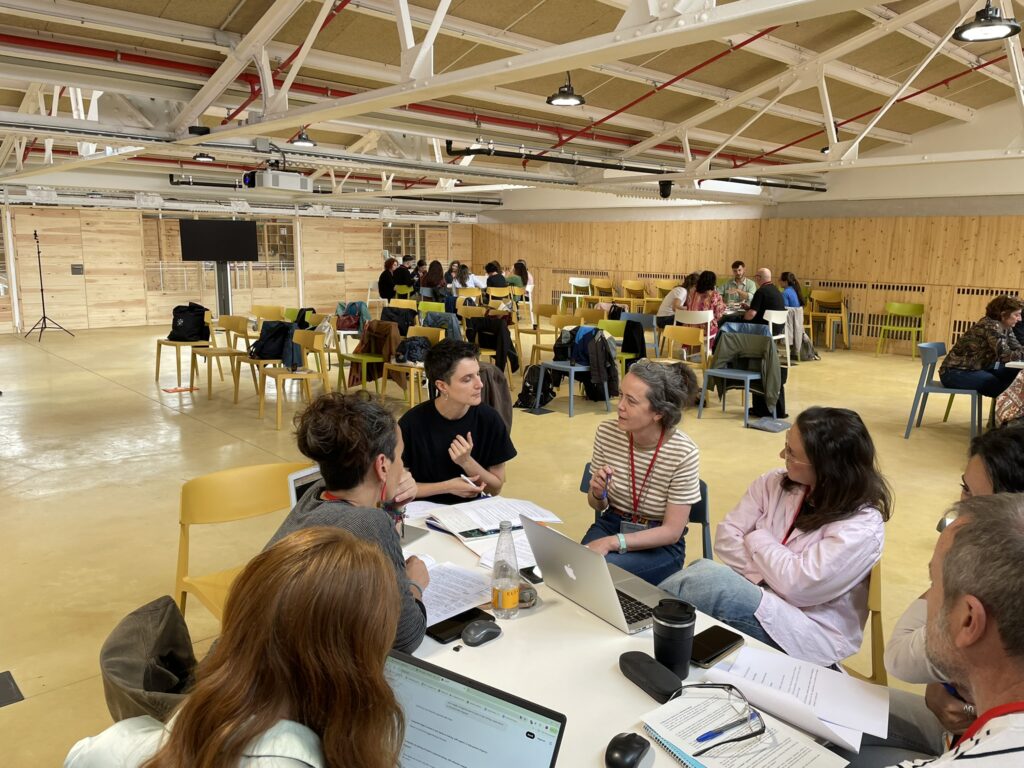
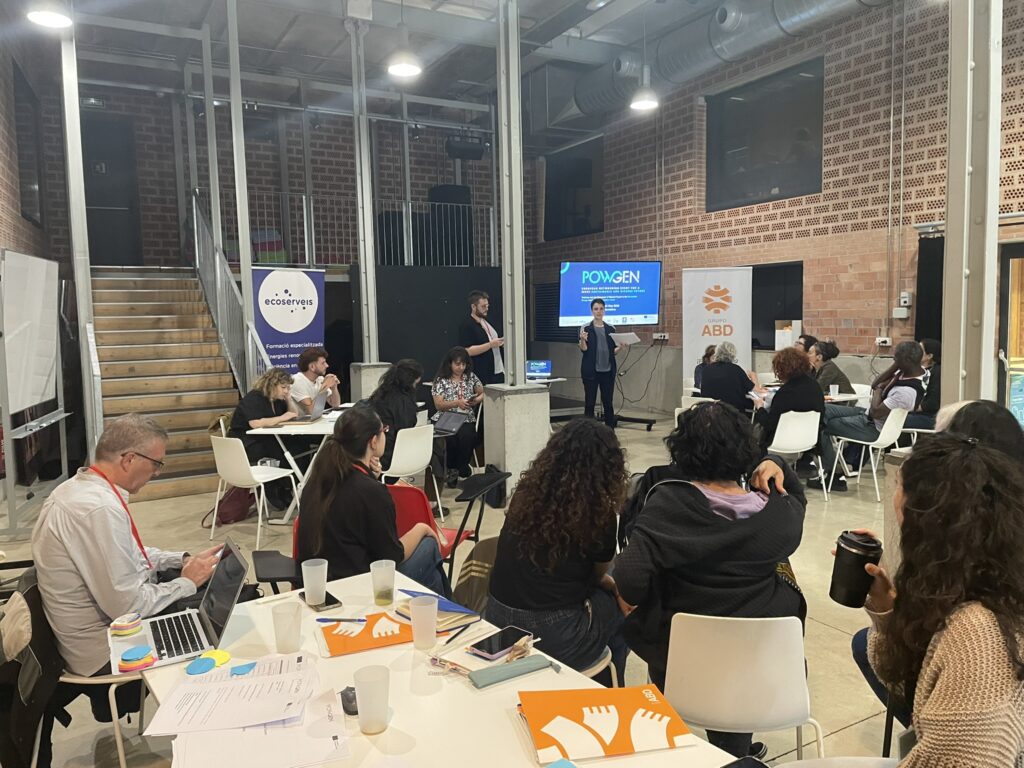
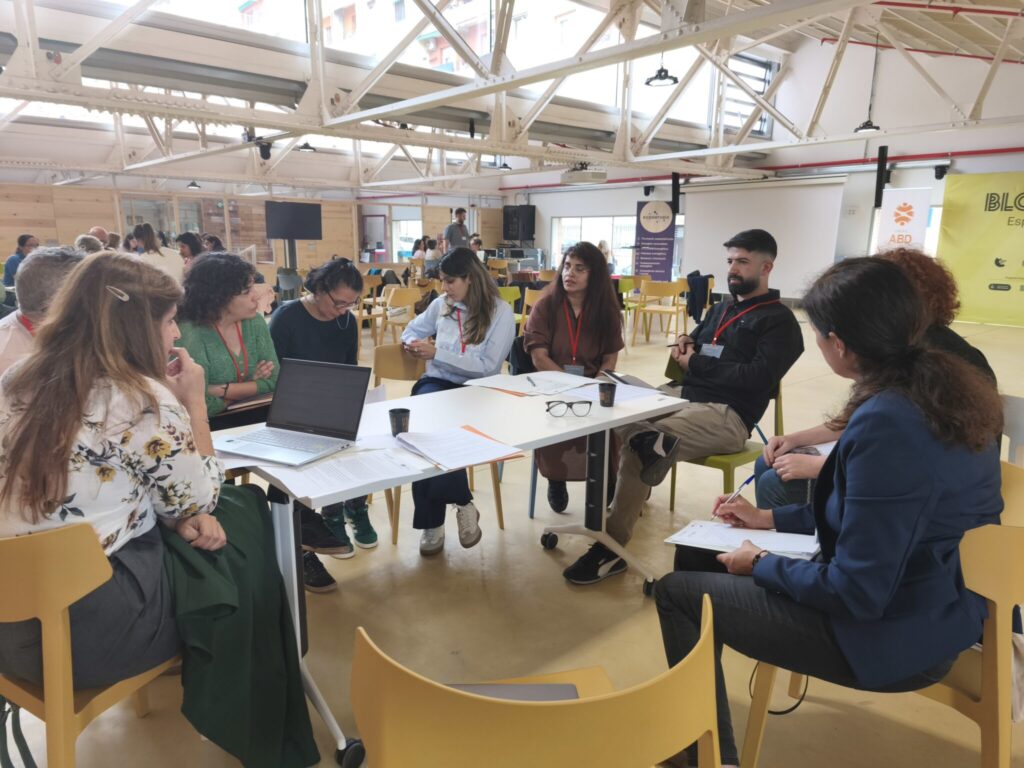
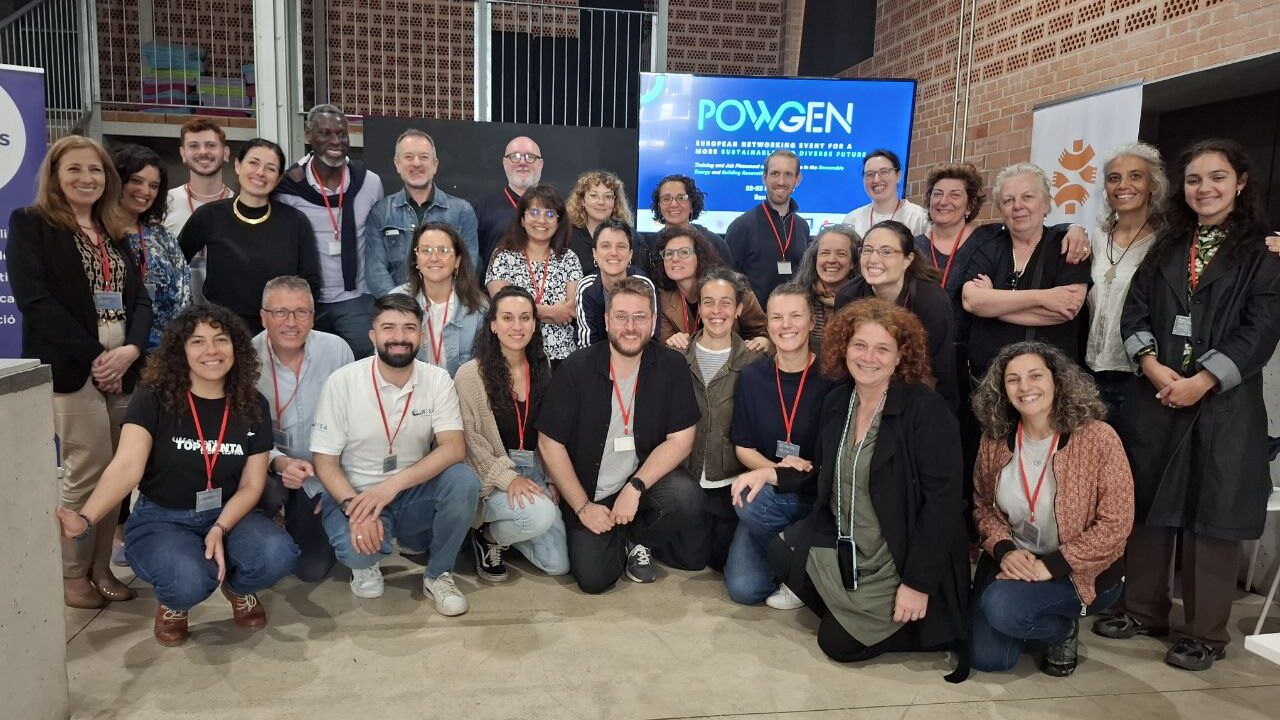


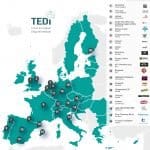

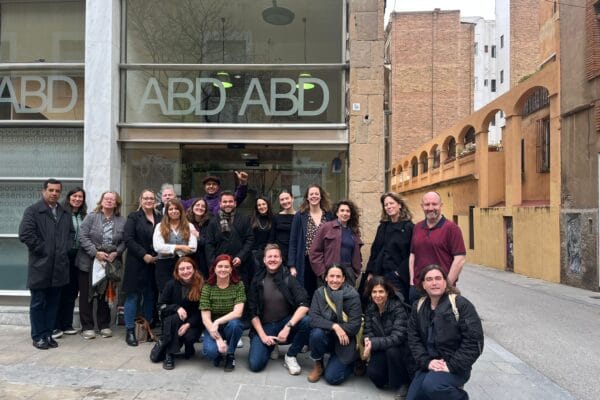
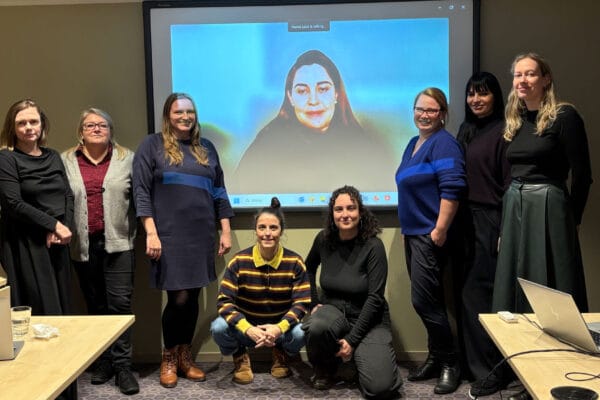
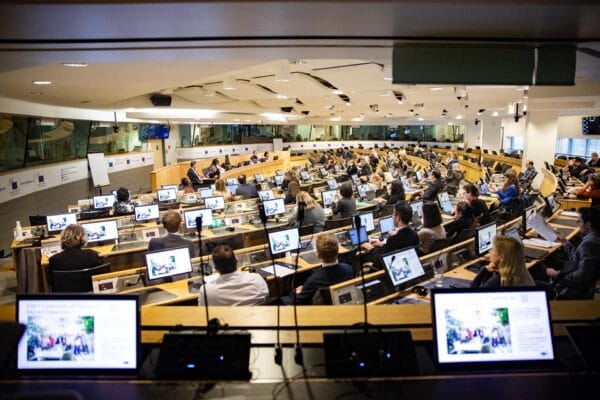
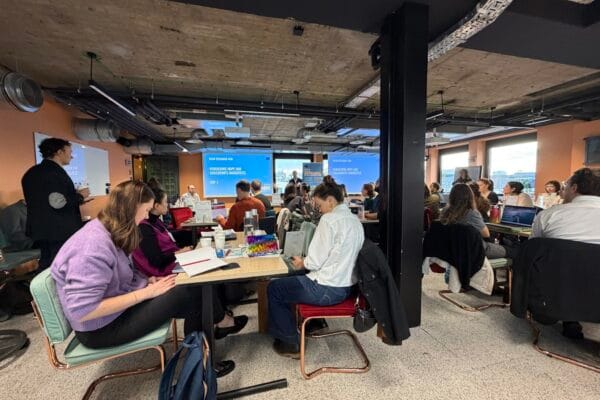
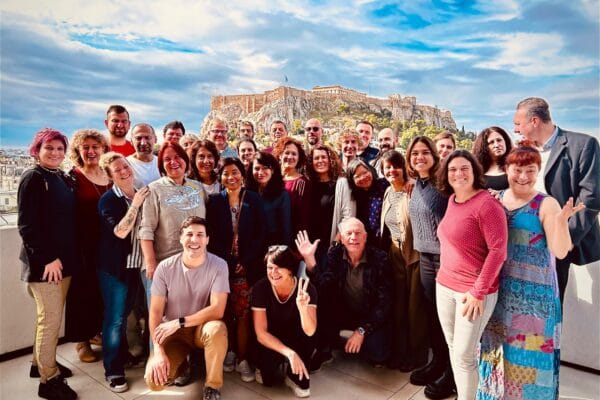
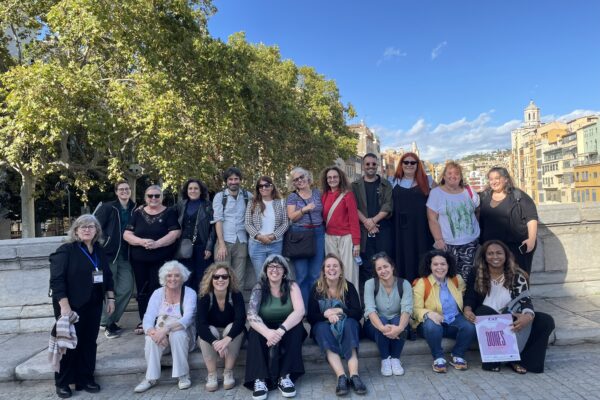
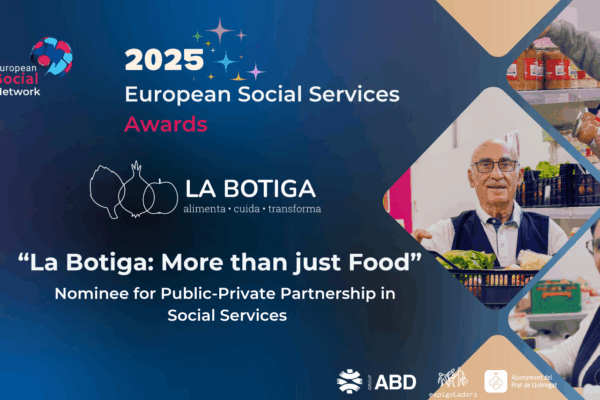
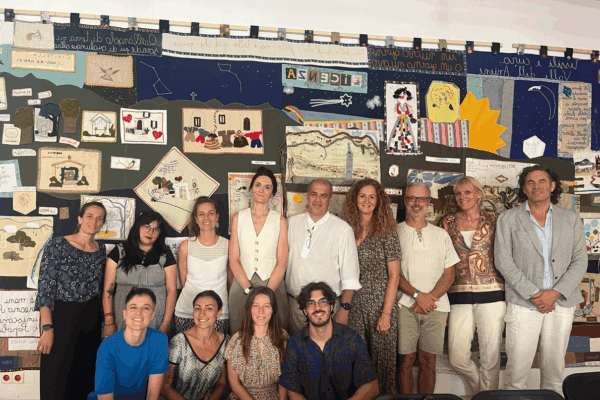
YouTube
ABD presentation. Why do we do what we do?
Instagram
📢 Come to the Europe Day of the LILA project